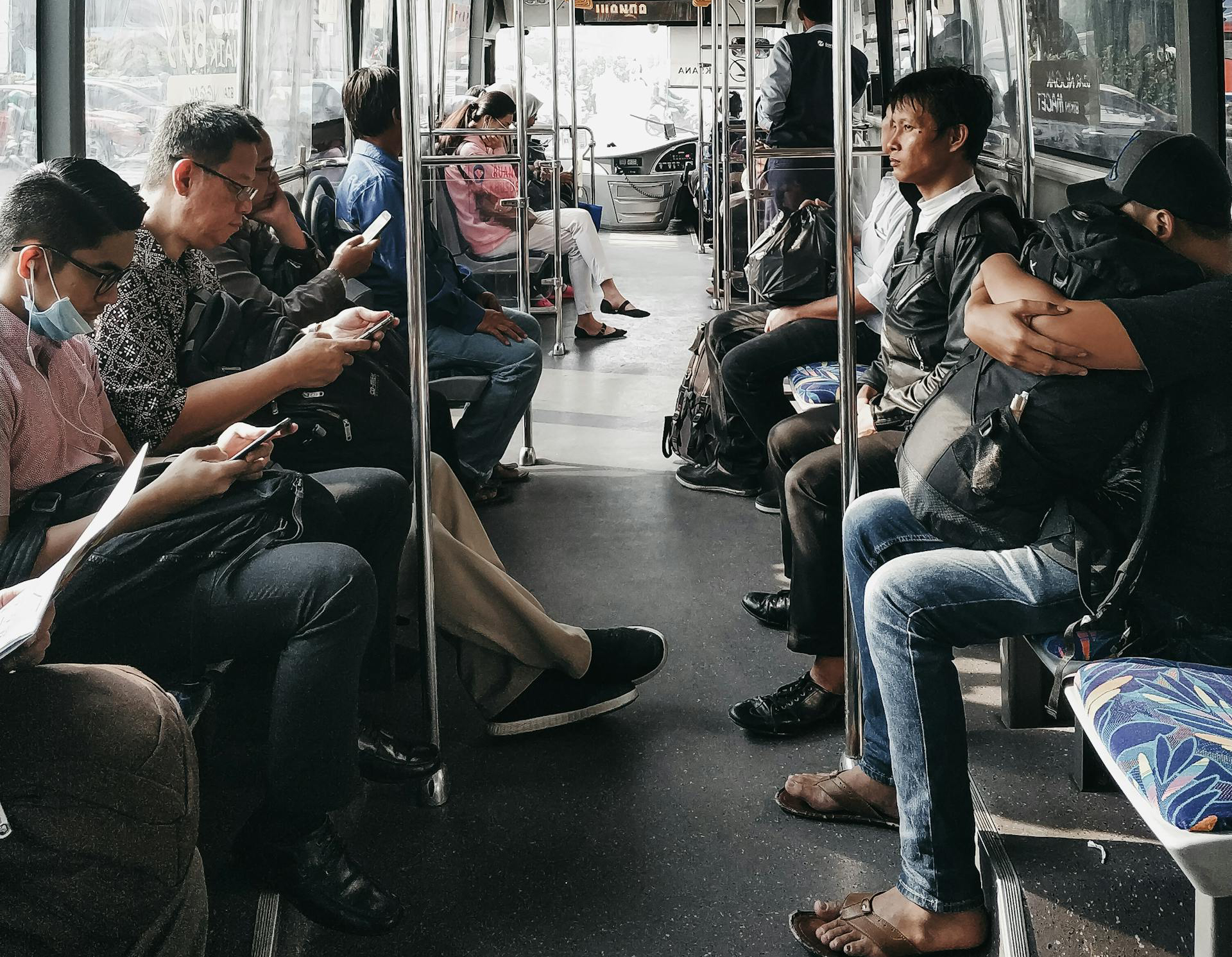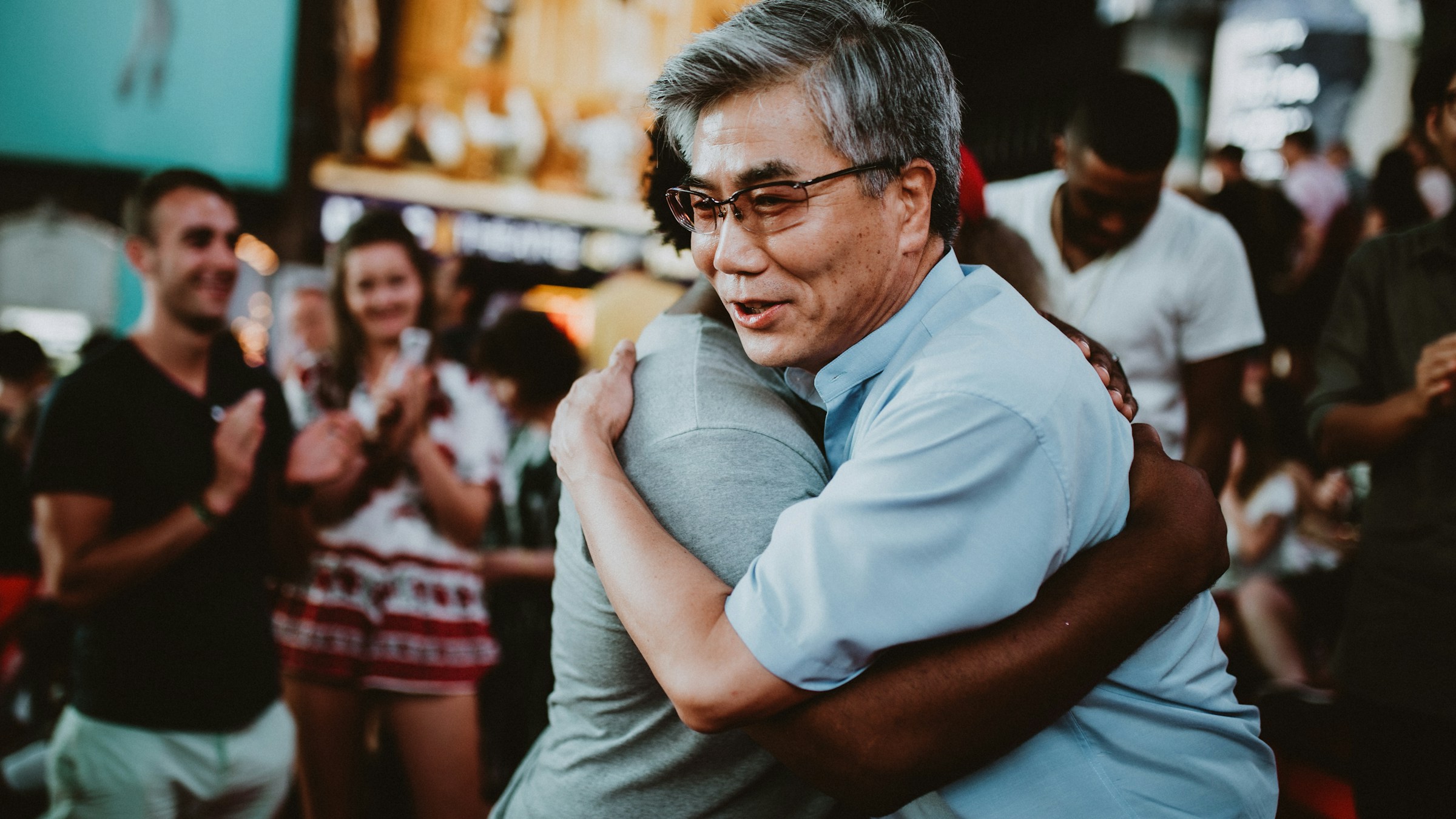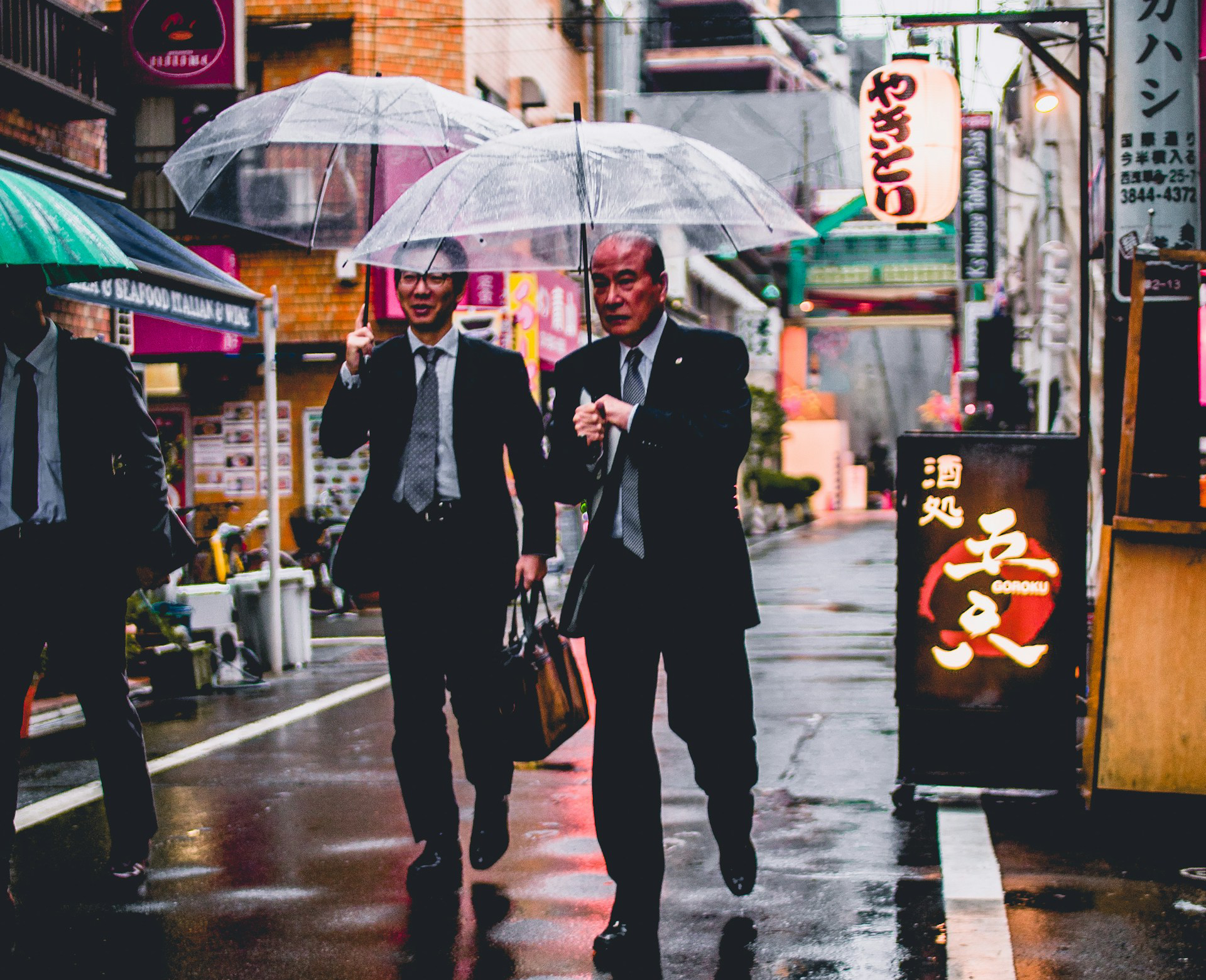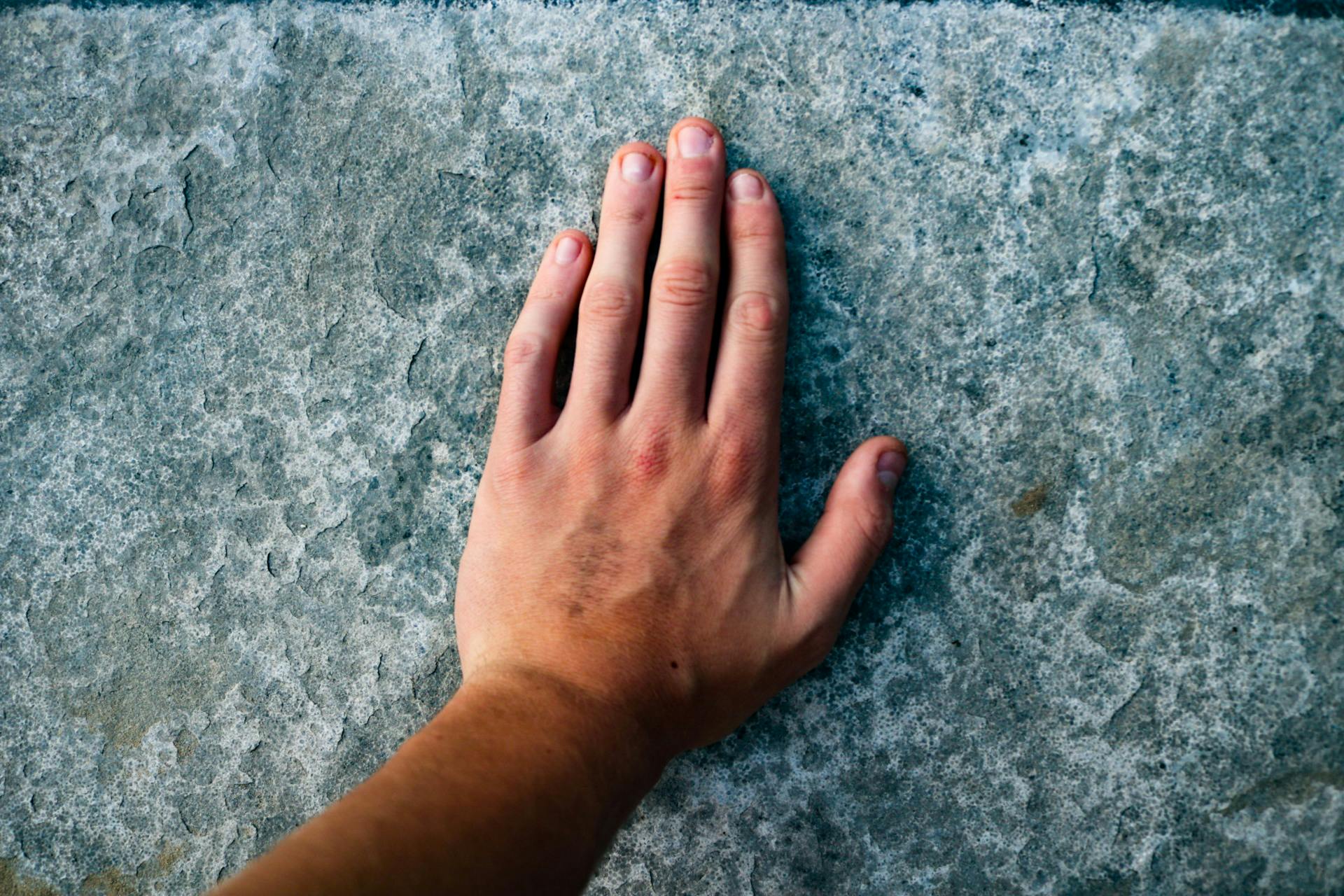Be respectful when abroad
Being mindful of cultural differences when traveling is important because some behaviors that are considered polite in the U.S. may be considered offensive elsewhere. It's crucial to understand varying norms when abroad to avoid misunderstandings and show respect for other cultures.
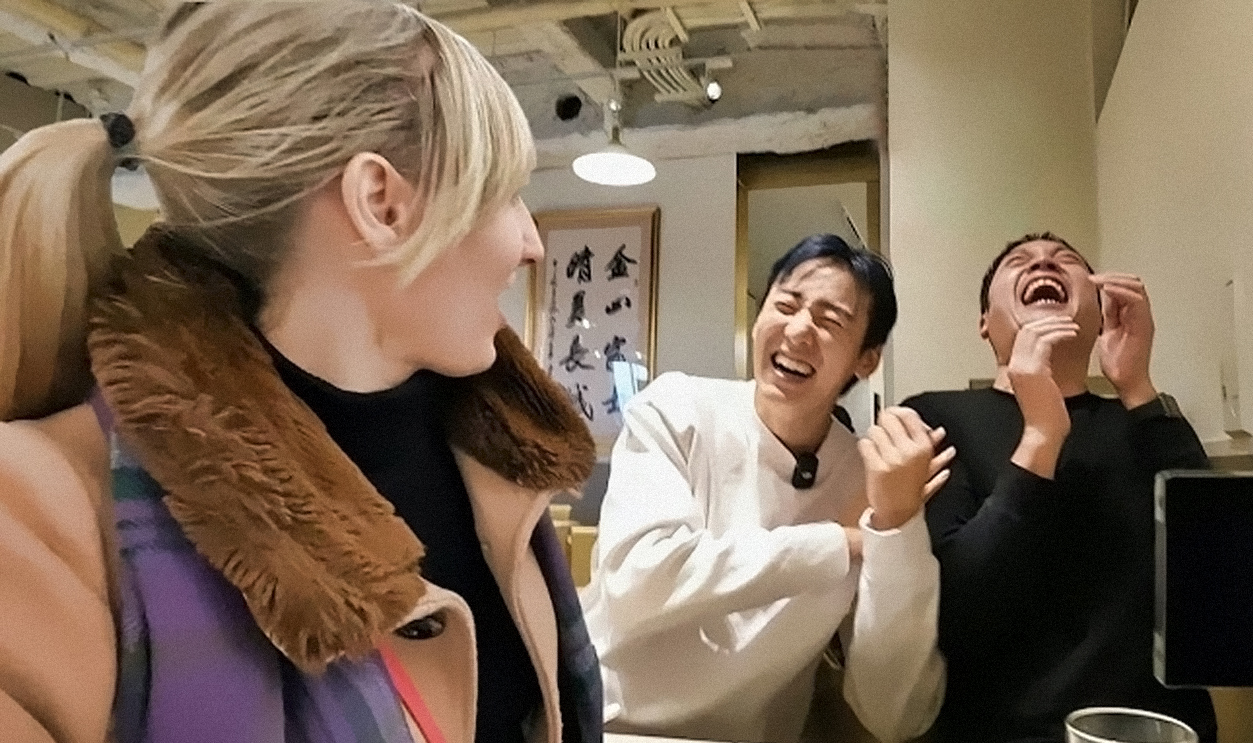
A-OK sign
In the US, the "OK" hand gesture is a commonly used communication too, that signifies approval. However, in Brazil, it is considered rude. Brazilians associate it with negativity, so travelers to Brazil are advised against using it while they are visiting the country.
 Rhea Ball, CC BY 2.0, Wikimedia Commons
Rhea Ball, CC BY 2.0, Wikimedia Commons
Asking personal questions
In the U.S., it may be inappropriate to ask someone personal questions, such as their age, salary, or marital status. In places like Japan, asking personal questions is not that big of a deal, especially when they are interacting with foreigners. Sometimes, the Japanese can be quite forward; but this is driven by curiosity rather than rudeness.
Blowing nose in public
Blowing your nose in public is acceptable in the U.S., but considered rude and unclean in Japan and China. People in those countries prefer to go to a private area like a bathroom stall to clear their nasal passages.
Casual outfits
In many urban areas in the Middle East, Western and local women are not mandated to cover up by law. However, many local women choose to wear abayas, hijabs, and veils. It is advised for Westerners to dress modestly out of respect for the local culture. Most Western women in the Middle East follow this advice closely. For example, some American females at dinners wear attire with high collars and neatly buttoned-up sleeves.
Chewing gum
In Singapore, it is illegal to chew gum in public. In fact, the import, sale, and distribution of gum is banned in the country because there was a time when vandals were using it to disrupt door sensors on MRT trains. Maintenance issues in public housing and buses were also caused by gum getting stuck.
 Alexander Staubo, CC BY-SA 2.0, Wikimedia Commons
Alexander Staubo, CC BY-SA 2.0, Wikimedia Commons
Direct eye contact
In general, individuals from Asian cultures tend to avert their eyes and look downwards during conversations as a sign of respect. This is because it can be considered aggressive or even rude to make direct eye contact when speaking to another person.
Discussing politics or religion
While discussing certain political or religious topics is commonplace in the U.S., in certain countries, particularly in Asia, Africa, and the Middle East, such is considered taboo and disrespectful. These societies prioritize peace and avoiding conflict in social interactions.
Eating on public transport
Eating while walking or on public transport is considered rude in various cultures. This tradition is common in countries like Taiwan, Malaysia, Indonesia, and India. In these societies, meals are meant to be enjoyed in designated areas or at specific times.
Eating with hands
In America, using utensils is common, and eating with one's hands is generally seen as uncivilized. Sometimes, even dishes like pizza and sandwiches are eaten with cutlery. However, in certain regions of the Middle East, Africa, South Asia, and South America, many people prefer to eat with clean hands.
Excessive smiling
In some cultures, smiling too much can give off an insincere vibe. For example, Russians reserve smiles for genuine happiness and familiar acquaintances. Smiling at strangers may be seen as insincere. In professional settings, Russians may appear more serious than Americans if they smile.
First name basis
In the U.S., using first names upon meeting someone is common and casual. However, in many European and Asian cultures, doing so without consent can be impolite. It is advised to use titles and last names unless told otherwise, as it is a show of respect in some Eastern countries.
Handshaking
Greetings in the U.S. often involve a firm handshake to show confidence, but this can be seen as rude in some Asian and Middle Eastern cultures. Offering a gentle handshake or refraining from one altogether is the more favorable behavior as it can help avoid misunderstandings.
Hugging between acquaintances
In the U.S., hugging and touching are common greetings. In countries like Japan and China, it's the opposite—physical touch is rare and can make people uncomfortable. Personal space is highly valued in thsoe societies, so people tend to employ more reserved greetings like bows or nods.
Improper posture
Maintain proper sitting posture to show respect in different cultures as this is a way to convey respect. Avoid reclining, hunching, or crossing legs inappropriately. Do not rest arms on furniture and keep arms at your sides or on your lap instead.
Interrupting mid-conversation
In some cultures, cutting someone off mid-sentence is just a normal part of conversational banter. The New York Times even coined this behavior "cooperative overlapping." In other cultures, however, interrupting someone while they are expressing a thought is seen as rude.
Making small talk
Small talk is less common in some countries compared to the U.S. For example, In Finland, personal space and privacy are valued, making small talk seem intrusive. Similarly, in Germany, small talk is less common as most Germans value directness and efficiency when communicating with others.
Not removing shoes
In Asian cultures, homes are sacred spaces where removing shoes before entering is a sign of respect for the host and the household. The act is rooted in their traditions and symbolizes leaving the chaos (and dirt) of the outside world behind.
Not using honorifics
In the U.S., first names are commonly used to greet others regardless of age or position. In Korea and Japan, appropriate honorifics are important for politeness. Using titles and respectful language shows respect for cultural ranking and avoids unintentional insults.
Opening gifts too soon
In many Asian societies like Japan, China, and South Korea, it is customary to not open gifts in front of the giver, reflecting humility and courtesy. Opening immediately might make the giver uncomfortable if the reaction is not as expected. Recipients typically express gratitude and wait to unwrap the gift privately to genuinely appreciate it without feeling pressured.
Personal space
Americans typically stand 30 inches apart from each other during face-to-face conversations. In contrast, many foreigners come from places where people tend to stand together crowdedly. These differences in the concept of personal space are important for both Americans and foreigners to understand.
Pointing an index finger
In many cultures including Western ones, pointing at others is considered impolite due to its association with blaming. It essentially subjects them to scrutiny without their consent. However, not all cultures adhere to this taboo—the Yucatec Mayas in southern Mexico, for example, do not find pointing impolite.
Pouring your own drinks
In Japan and Korea, pouring your drink is considered impolite. Instead, others at the table will pour for you as a gesture of care. This custom reflects the cultural value of reciprocity and admiration among friends.
Public displays of affection
Public displays of affection are considered inappropriate in many Middle Eastern and Asian regions, where modesty and privacy are valued. Respecting and adhering to local customs is important in these societies.
Varied punctuality
Punctuality is valued in the U.S. as a sign of respect—but in Argentina and Mexico, arriving exactly on time can be stressful and even impolite. Social gatherings often start later than scheduled.
Refusing food and drink
In some places, refusing food or drink from a different culture is like rejecting the culture and people. If you are travelling to a different country and come across locals who offer you food, try to make an effort to taste that food when possible.
Showing the soles of feet
In Arab, Muslim, Hindu, and Buddhist nations, showing the soles of your feet is disrespectful because they are considered the lowest, dirtiest part of the body. Men, in particular, should be cautious crossing their legs to avoid this action.
Talking loudly
In the US, public speaking is often loud and commonplace; whereas in countries like Japan and Switzerland, it is seen as rude. Residents of those countries value peace and privacy, which means they generally expect people to speak quietly when in public.
Talking with hands on hips
In Mexico, communicating with your hands on your hips is seen as hostile behavior. Such a posture indicates that you are being confrontational toward the person you are talking to.
Thumbs up
Thumbs-up universally symbolizes agreement, except in some West African and Middle Eastern countries like Iran, Iraq, and Afghanistan. In those countries, a thumbs up could signify an act of defiance or disrespect, akin to the middle finger in the U.S.
Tipping
Tipping is not expected in Japan and South Korea. At restaurants and bars, the workers simply strive to provide excellent service without any additional compensation. In many cases, it is considered impolite to insist on tipping. Showing gratitude by thanking your servers is the standard (and all that is necessary from customers).
Using left hand
Using the right hand for general activities like eating and socializing is common and accepted in many cultures due to cultural beliefs and hygiene considerations. In Islam and other regions, the left hand is seen as impure and is used primarily for personal hygiene after using the bathroom.
Waving someone over
In some cultures, waving or calling someone over may be seen as impolite or confrontational. In certain Asian and Middle Eastern societies, it is more respectful to use a slight nod or small hand gesture.
Yawning without covering mouth
In Japan and some cultures, covering your mouth when yawning is considered polite and respectful. Along the same vein, covering your mouth while laughing is also considered a respectful practice as it aligns with the Japanese preference for quiet spaces.







